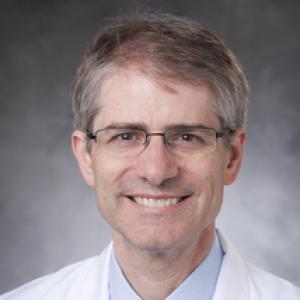
Benjamin A. Alman, MD, FRCSC
Dr. Alman is James R. Urbaniak Professor and Chair of Orthopaedic Surgery at Duke University. Additionally, he has held or holds the following appointments:
- Professor in Cell Biology, Cell Biology, Basic Science Departments 2014
- Professor in Pediatrics, Pediatrics, Clinical Science Departments 2014
- Professor in the Department of Pathology, Pathology, Clinical Science Departments 2015
- Professor in Pharmacology and Cancer Biology, Pharmacology & Cancer Biology, Basic Science Departments 2020
- Member of the Duke Cancer Institute, Duke Cancer Institute, Institutes and Centers 2013
- Co-Director of the Duke Regeneration Center, Regeneration Next Initiative, Basic Science Departments 2021
Dr. Alman earned his M.D. degree from Jefferson Medical College of Thomas Jefferson University (Pennsylvania) in 1986. Prior to joining Duke University, Dr. Alman was the A. J. Latner Professor and Head of the division of Orthopedic surgery at the Hospital for Sick Children in Toronto, Ontario, Senior Scientist in developmental and stem cell biology at Sick Kids, and Vice Chair of the Department of Surgery at the University of Toronto.
Dr. Alman received the Premier's Research Excellence Award, the Huene Award, the OREF Research Award, and the Royal College Medal in Surgery.
Dr. Alman is an orthopaedic clinician-scientist whose research focuses on understanding the role of developmentally essential processes in the pathologic process involving the musculoskeletal system. The long-term goal of his work is to use this knowledge to identify improved therapeutic approaches to orthopaedic pathologic disorders. He extensively uses genetically modified mice to model human disease and used this approach to identify new drug therapies for musculoskeletal tumors and improve the outcome of related processes in cartilage, skin, and bone. As part of this work, Dr. Alman generated novel genetically modified mice to study tumors and reparative processes and is using these to develop new therapies. He also works on cellular heterogeneity in bone tumors, such as sarcomas, and how this relates to developmental processes. His lab identified a subpopulation of tumor-initiating cells in musculoskeletal tumors and found that this subpopulation of is responsible for sarcoma self-renewal.
Another focus of the Alman Lab is to determine the regulation of mesenchymal cells in repair processes. Dr. Alman’s work on beta-catenin (ß-catenin) using transgenic mice was the first demonstration of the importance of this pathway in fracture repair. More recently, he used lineage-tracing studies to investigate the role of macrophage cells in skin and bone repair and found a novel role for young hematopoietic cells in rejuvenating fracture repair.
Dr. Alman is the principal investigator on several NIH grants. He has more than 175 peer-reviewed publications in journals such as Lancet, Cell, and Nature Medicine. He has supervised over 30 graduate students and postdoctoral research trainees in his lab. He was recruited to Duke from Toronto’s Hospital for Sick Children in 2013.
Dr. Alman identified somatic mutations resulting in ß-catenin mediated transcription in more than 70% of desmoid tumors. Based on this work, ß-catenin analysis is used to diagnose this tumor type, and mutational analysis is used as a prognostic test.
Dr. Alman’s group found that ß-catenin mediated transcription is activated during the proliferative phase of wound healing and regulates scar size and osteoblast differentiation in fracture repair. He was the first to show that circulating factors regulate fracture healing and ß-catenin during repair and using parabiosis. He found that factors from the blood of juvenile animals can rejuvenate fracture repair.
Dr. Alman and his research team identified the first mutation causing enchondromas (a benign pre-malignant cartilage tumor). Using a mouse expressing the mutation, he identified pathways regulating tumor progression.
Dr. Alman and his group were the first to show that mesenchymal tumors contain a subpopulation of cells with tumor-propagating characteristics and that targeting this cell population can treat sarcomas.